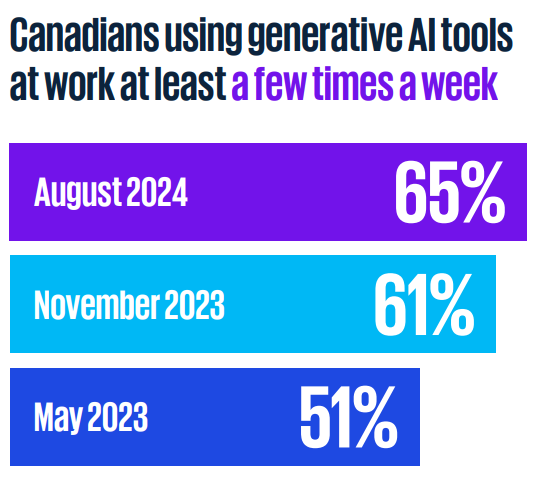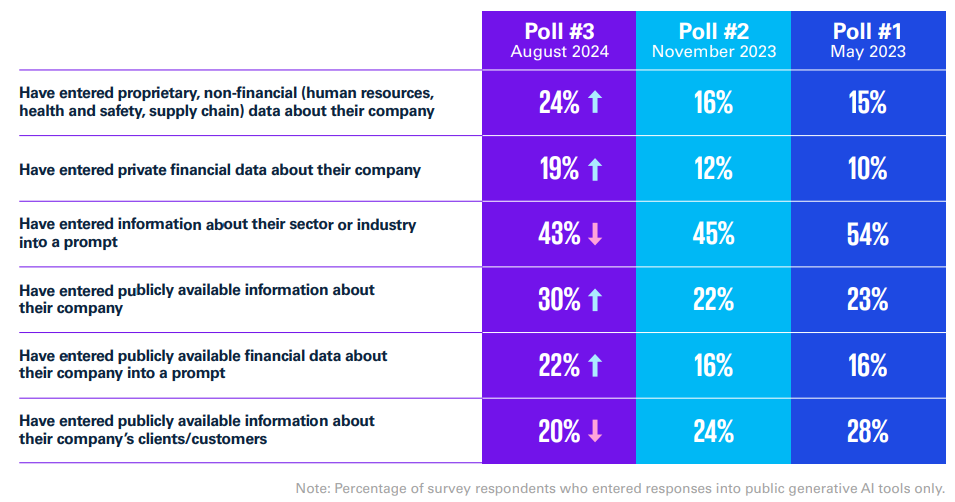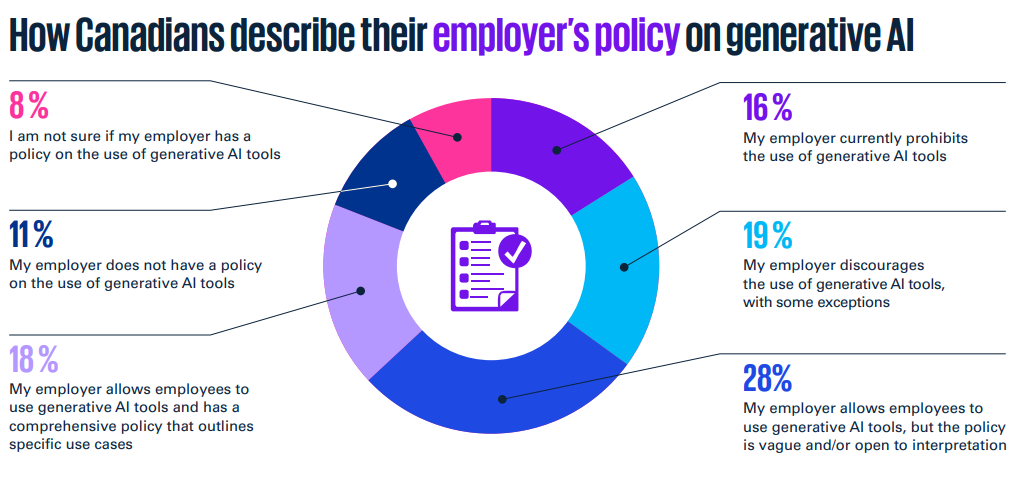More than one-third of employees unaware of organizational controls about use of generative AI: report

The adoption of generative artificial intelligence (AI) in Canadian workplaces has more than doubled in the past year
But many Canadians may be risking sensitive data in the process, according to a KPMG report.
Overall, nearly half (46 per cent) of Canadian employees now use generative AI at work, up from 22 per cent in 2023.
And this has become a regular fixture in the work process for many.
Over nine in 10 (92 per cent) of small and medium-sized business (SMBs) leaders are confident in their company's growth prospects over the next three years, and many are banking on AI and automation to do so, according to a previous report from KPMG.
How is AI beneficial in the workplace?
The surge in AI adoption comes as many save time using the tool, according to KPMG’s recent survey of 2,183 Canadian workers, conducted Aug.6-21, 2024:
- “It saves me less than one hour of work per week: 23 per cent
- “t saves me 1-2 hours of work per week”: 29 per cent
- “It saves me 3-5 hours of work per week”: 28 per cent
- “It saves me 6-9 hours of work per week”: 11 per cent
- “It saves me 10 or more hours of work per week”: 5 per cent
Using AI to reduce time spent doing administrative tasks could be the key to healthcare professionals having more time to care for their patients, according to a previous report.
However, many workers enter sensitive company information into public AI platforms, potentially exposing their employers to harm.
"It's great to see such a surge in employee adoption because we know generative AI boosts productivity," says Lewis Curley, partner in KPMG in Canada’s people and change practice. "But employers really need to get ahead of this to ensure their employees don't unintentionally release private or confidential data."
What is a good AI policy?
Despite the risks, many workplaces appear unprepared. While 51 per cent of employees report that their employers encourage the use of generative AI, 37 per cent say they are unaware of any organizational controls regulating its use.
"Not only is it crucial for organizations to have policies in place, but they must also clearly communicate those expectations to their people," Curley added.
If a business wants to take advantage of “the transformative opportunities offered by AI, a clear, detailed and comprehensive AI policy is essential,” says Bernard Marr, author of Generative AI in Practice: 100+ Amazing Ways Generative Artificial Intelligence is Changing Business and Society, in a Forbes article.
“Establishing guidelines around what constitutes acceptable and unacceptable use of AI should be the first step in safeguarding against its potential risks,” he says. “However, it's crucial to understand that an effective AI policy goes beyond mere risk mitigation – it's also a powerful enabler for innovation and growth.”




